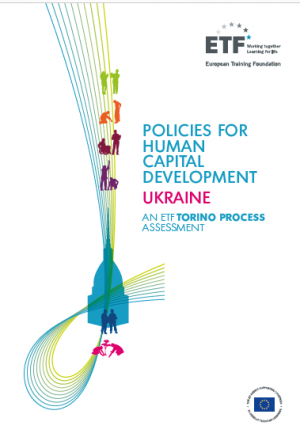This section discusses two issues related to human capital development in Ukraine: (i) VET and skills governance and (ii) declining participation in VET and its lack of attractiveness. These two issues are assessed in the context of ongoing reforms in the education sector. In the ETF's view, these issues require immediate attention and concrete actions to balance human capital development in Ukraine. The aim must be to make sure that public policies enhance the quality of VET and avert the decline in VET enrolment and the aspirations of both young people and the population as a whole. This is needed for a new start in skills development with a view to contributing to modern Ukrainian society and the economy.
Low participation in VET and the sector's lack of attractiveness is not a novelty for Ukraine. Improving guidance and counselling services is often considered a way to engage young people's interest in enrolling in VET programmes that are relevant to the labour market. Yet VET remains an unpopular choice in Ukraine, even though some guidance information is available to young people. Vocational guidance and counselling have been identified as an objective of inter-agency government policy. The government's action plan includes a number of steps aimed at introducing modern mechanisms for youth employment and disseminating information among young people about employment opportunities available in Ukraine. It has also been identified as a critical area in the new VET concept.
However, career guidance and counselling, which should start when students are in lower secondary education, cannot do miracles for VET. It is important, therefore, that guidance and counselling services help students in secondary education to be more aware of the labour market implications of their choices. A lot of work is already going on in Ukraine in this area[24] National reporting framework: C 3.4.
. Such work includes cooperation activities between general education schools and VET providers. The aim is to inform young people about different occupations and to involve employers in providing career guidance, which may help to change attitudes towards VET. It is equally important that adequate guidance and counselling services are available for students opting for upper secondary general or higher education.
There is an opportunity now to make a difference regarding VET, given the ongoing reforms and attention to systemic changes in education. One of them is the objective of the New Ukrainian School: to profile upper secondary education in both academic and vocational pathways. This offers an opportunity to guide and influence the preferences of students and their parents.



